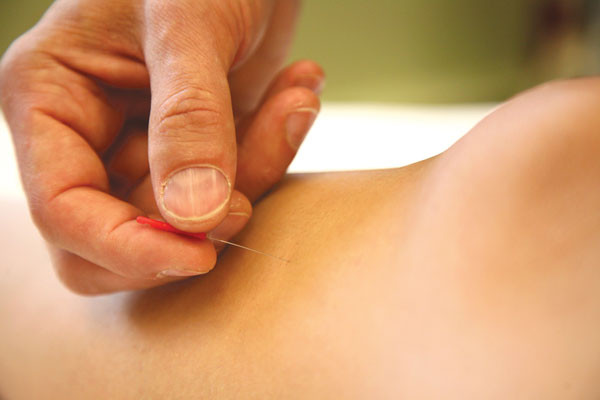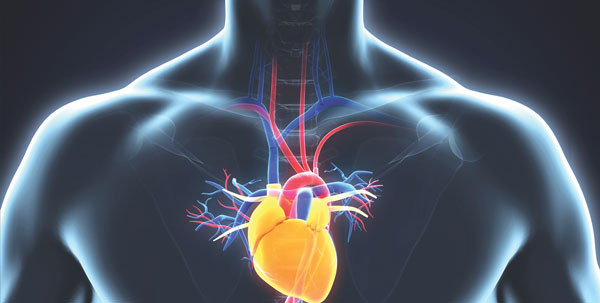
Wildfires: How to cope when smoke affects air quality and health

What can magnesium do for you and how much do you need?

Dry socket: Preventing and treating a painful condition that can occur after tooth extraction

What happens during sleep �� and how to improve it

How is metastatic prostate cancer detected and treated in men over 70?

Could biofeedback help your migraines?

What is autism spectrum disorder?

Plantar warts: Options for treating this common foot condition

Cancer survivorship: What comes next after treatment

Nutritional yeast: Does this savory, vegan seasoning pack a nutritional punch?
Diseases & Conditions Archive
Articles
Modern acupuncture linked to constipation relief
It appears that electroacupuncture may be a treatment option for people with chronic severe functional constipation.
What is a lacunar stroke?
Lacunar strokes, which account for about one-fifth of all strokes, occur in small arteries deep within the brain. Although these strokes may not cause symptoms, those that do may cause weakness in the face, arm, or leg on one side of the body.
Bringing awareness to aneurysms in the chest
Most often, bulges in the aorta near the heart are found by accident. Should you be screened for this rare yet dangerous condition?
��Image: Nerthuz /Thinkstock
The aorta, the body's largest blood vessel, arises from the heart's left pumping chamber, then curves up and over the heart in a gentle arc. In some people, a weak spot in the aorta's wall causes the vessel to bulge outward like a worn-out bicycle tire. Called a thoracic aneurysm, this stealthy condition develops slowly and silently, rarely causing symptoms. And while some thoracic aneurysms are relatively harmless, others cause catastrophic problems. An estimated one in 10,000 people has a thoracic aneurysm, although the exact prevalence is unknown.
"Most thoracic aneurysms are discovered on an imaging test done for some other reason," explains Dr. Eric Isselbacher, associate professor of medicine at Harvard Medical School and co-director of the Thoracic Aortic Center at Massachusetts General Hospital. For example, an aneurysm might be visible on an echocardiogram (heart ultrasound) done during testing for an irregular heartbeat. Because the condition is so uncommon, testing everyone for a thoracic aneurysm doesn't make sense. But certain people face a higher risk than others (see "Who needs to be checked?").
What causes a cough after a cold?
A persistent cough that remains after an infection has been treated can last for a month or two. There are several treatments that may offer relief, such as antihistamines or a bronchodilator inhaler.
Does cranberry extract prevent UTIs?
Scientific evidence doesn’t support taking cranberry extract to prevent urinary tract infections.
What clinical trials can do for you
Participating in a medical study may benefit your health and perhaps that of millions of others.
��Image: grandaded/Thinkstock
If you've ever considered donating your body to science—or granting science a temporary loan—now's the time to do it. Researchers are always recruiting patients for studies of new treatments and preventive strategies for diseases ranging from Alzheimer's to zoster (shingles). In the simplest terms, these studies compare existing approaches to newer ones in similar groups of people and determine which is more effective.
"Clinical trials are the vehicle by which we transfer things that we think into things that we know or don't know," says Dr. Jeffrey Drazen, professor of medicine at Harvard Medical School and editor in chief of The New England Journal of Medicine.
Surviving the flu season
The odds of beating the bug are increasing as another new vaccine for seniors debuts.
��Image: Bigstock
The flu season is upon us. Like that other season—winter—it can be unpredictable. But the Centers for Disease Control and Prevention (CDC) is doing its best to see that we're informed and as prepared as possible for whatever is in store. For updates throughout the flu season, check the CDC website, www.cdc.gov/flu.
How well does the flu shot work?
Why the flu shot is worthwhile
Flu vaccination may make your illness milder if you do get sick. A 2016 study indicated that people 50 or older who got a flu vaccination had a 57% lower risk of hospitalization for the flu than their contemporaries who weren't vaccinated. Flu vaccination has been associated with lower rates of heart attacks and related problems among people with heart disease and with reduced hospitalizations among people with diabetes and chronic lung disease.
Getting vaccinated yourself also protects people around you, including those who are more vulnerable to serious flu illness, like babies and people with certain chronic health conditions.
Vaccines for seniors
Mobile app reduces stress incontinence episodes in small trial
Women who used Tät, a smartphone app, did more pelvic floor exercises and had greater reductions in episodes of stress incontinence.
Numb fingers? Icy toes? It may be Raynauds.
Raynaud's phenomenon—an extreme reaction to cold—can be annoying, or it may signal a serious chronic condition.
��Image: Bigstock
If you live in the northern latitudes, you may have already had an episode in which your fingers froze or your nose, toes, or earlobes grew cold, pale, and numb. And if you're a southerner, you might have neighbors who migrated to avoid such episodes. While some people with chilly fingers just have cold sensitivity, others—especially women—may have Raynaud's phenomenon.
What is Raynaud's?
Two forms of Raynaud's
Primary Raynaud's phenomenon, which has no known cause, is much more common in women than in men and often begins in adolescence. Although it can be annoying and even painful, it usually doesn't require medical attention.
Secondary Raynaud's phenomenon occurs later in life in people who have injuries from operating vibrating tools or who have autoimmune disorders that affect connective tissue, such as scleroderma, rheumatoid arthritis, or lupus. These conditions can damage blood vessels and change their response to cold or stress. If you develop Raynaud's later in life, you should get a medical evaluation to determine whether you have secondary Raynaud's and, possibly, another underlying condition that warrants treatment.
Living with Raynaud's
��
��
��
Is it too late to get a flu shot?
The best time to get an annual flu shot is in mid-October. However, it’s not too late to get the shot in December, since people are still at risk of getting flu for several more months.

Wildfires: How to cope when smoke affects air quality and health

What can magnesium do for you and how much do you need?

Dry socket: Preventing and treating a painful condition that can occur after tooth extraction

What happens during sleep �� and how to improve it

How is metastatic prostate cancer detected and treated in men over 70?

Could biofeedback help your migraines?

What is autism spectrum disorder?

Plantar warts: Options for treating this common foot condition

Cancer survivorship: What comes next after treatment

Nutritional yeast: Does this savory, vegan seasoning pack a nutritional punch?
Free Healthbeat Signup
Get the latest in health news delivered to your inbox!
Sign Up










